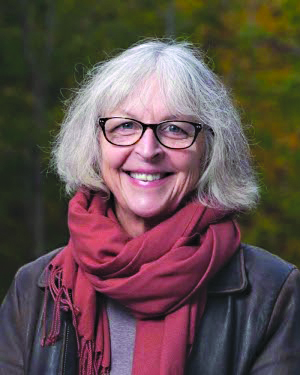UNH opens Children’s Behavioral Health Resource Center
The University of New Hampshire’s Institute on Disability is developing a new Children’s Behavioral Health Resource Center, funded by the New Hampshire Executive Council, set to open this spring. UNH research associate professor JoAnne Malloy, who co-directs the center with UNH Institute on Disability director Kelly Nye-Lengerman, discussed the center’s mission and operations.
What is the Children’s Behavioral Health Research Center?
Our center will form around a lot of work we’ve already been doing with the state. … In 2019 the state legislature and the governor signed Senate Bill 14, which established funding for a Children’s Mental Health System of Care, which is a national model. It’s necessary because families who have a child with a mental health issue often find that the services are fragmented; they could have a mental health counselor and a school counselor and a DCYF worker. It’s really hard for parents, because they’re already dealing with a very stressful situation, and then they have all these services coming at them. The System of Care is designed to help families … find the services and support they need. …This center is part of that bigger work. Our job will be to help identify practices that have good research evidence … and are shown to be effective.
How did you get involved?
I started working here at the university in the mid ’90s. I’ve always specialized in working with adolescents with emotional and behavioral challenges. … I started working with the state to build a System of Care … and develop a model to help that population [of youth] … and to help the people working in the field get good quality training and education and to give them the support they need.
What needs will the center address?
A lot of children and young people have been going to the emergency room in a mental health crisis. It’s been really exacerbated by the pandemic, with children not being able to go to school consistently and not being able to see their friends and trying to learn online. … The problems we’ll be addressing are for those children and youth who are really stressed and have a mental health concern. Perhaps they’re acting out in the community or attempting self-harm or suicide. Perhaps they’re going out into the community and breaking laws. They’re not going to school. They may have emotional disorders such as severe anxiety or depression. It’s a wide variety of issues [affecting] children and youth that we’re looking at.
What will some of the center’s main day-to-day operations be?
We have 10 community mental health centers across the state, so we’ll be training providers … and some of their staff in how to work with children who have significant trauma backgrounds and use cognitive behavioral therapy, which is an evidence-based practice. … We also do consultations. Once somebody goes to the training, they often need guidance … so we’ll be observing them in treatment sessions and providing them feedback to make sure that what they’re doing is good practice. … We also bring [mental health care] partners together and gather information about what they need. Some of our staff will be doing interviews and focus groups [to find out] where we need to fill in the gaps.
Is there anything else like this in the state?
There are currently no other centers in New Hampshire that focus on children’s mental health and evidence-based practices … but there are smaller groups, and this [center] is bringing everybody together. … There are centers like this in other states, and I’ve been looking at those and [their] models.
What are the center’s goals, short-term and long-term?
Short-term, we want to do three trainings by the end of June to train and provide consultation to 80 people. … Long-term — the contract [for the center] is for three years and potentially renewable — I’d like to see the center become a permanent fixture in the state, and something that changes with the needs of people in the field. Most of all, I want it to make an impact, because at the end of the day, if we’re not actually helping children and families, we might as well all pack up and go home.
Featured photo: JoAnne Malloy. Courtesy photo.



